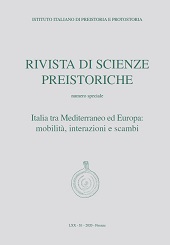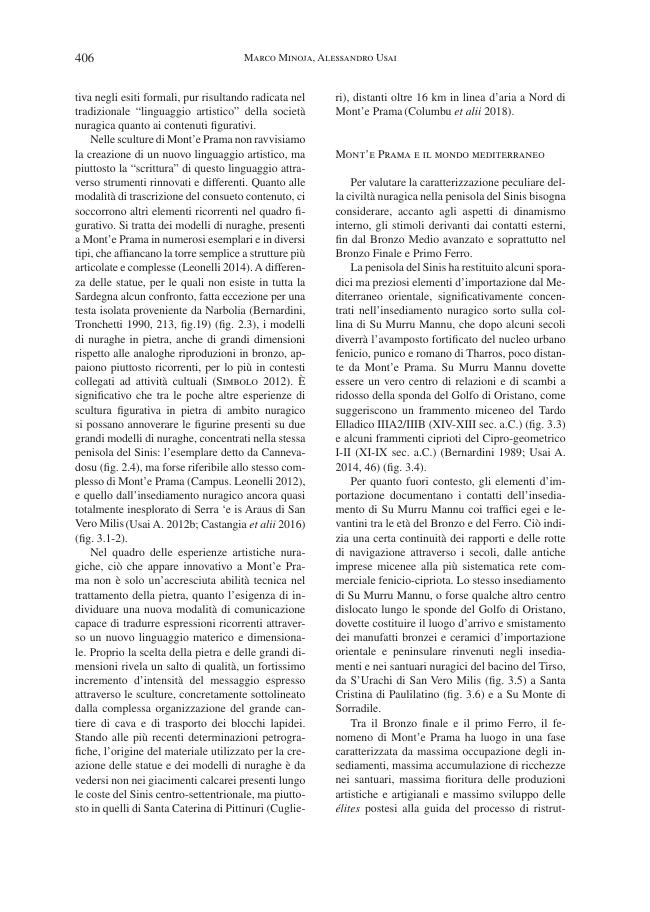Le sculture nuragiche di Mont'e Prama nel quadro dei rapporti mediterranei della Sardegna dell'età del Ferro
P. 401-410
The necropolis of Mont'e Prama (Cabras - OR), with its large statues and other limestone sculptures, is a unique phenomenon in Sardinia, indicative of a profound transformation of the entire social and cultural context. The statues, all male and life-size, represent ‘boxers', archers and warriors. They have an evident iconographic and stylistic connection with the abundant and famous small bronze votive figurines and the stone and bronze models of nuraghi, well represented all over Sardinia during the Final Bronze Age and the Early Iron Age. Nevertheless, the statues and the necropolis have no comparisons in Nuragic Sardinia. In the absence of convincing similarities with the contemporary sculptures from the Italic and Greek world, some scholars have been looking for analogies between the statues of Mont'e Prama and Syrian products.
The persons depicted and their clothing, equipment and poses are deeply rooted in the local Nuragic context. The clients, assumed to be leading figures of emerging groups or families, seem to be equally rooted in the local world, but also prepared to accept new practices and behaviour which could enhance their prestige and power. The choice of stone and the large dimensions reveal a significant change, a major intensification of the message expressed through the sculptures. The entire range of components and elements found at Mont'e Prama illustrates a context characterized by several factors of dynamism that indicate the evolution of the Nuragic world towards new models, accompanied by proofs of contact with several cultures which were active in the western Mediterranean context of the Early Iron Age. [Publisher's text]
-
Articoli dello stesso fascicolo (disponibili singolarmente)
-
Informazioni
Codice DOI: 10.32097/1141
ISSN: 2282-457X



